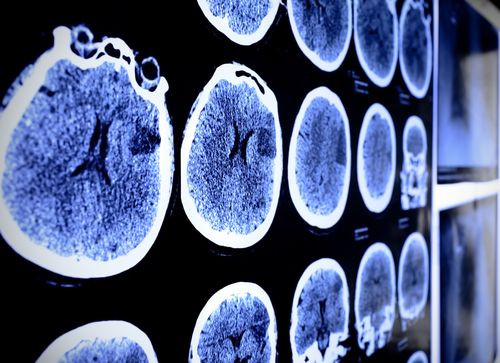Stem Cells May Help Recovering Stroke Sufferers By Promoting Blood Vessel Growth

Stroke patients suffer immensely. Even after their initial brain trauma they have a long road to recovery, but new stem cell research may help speed up the process for them. UK researchers form the Imperial College London can infuse stem cells into the brain after a person has a stroke in order to treat damaged areas.
"This is encouraging and exciting early research,” the study’s lead researcher Dr. Soma Banerjee told BBC. "Now we need to look at a larger group of patients and hope eventually to develop a treatment based on this approach." The researchers monitored patients who had survived severe strokes and were impaired in their abilities to move forward in everyday tasks.
The study was published in the journal Stem Cell Translational Medicine, and has already given hope to those hoping to read, write, walk, and talk again in the months following their stroke. Scientists monitored patients for six months, paying special attention to their abilities to carry out everyday activities independently. Four out of the five patients they examined had loss of speech and paralysis on one side of their body, but three were able to walk and take care of themselves independently six months after they received stem cell infusions.
The isolated stem cells were CD34+, which have the ability to stimulate new growth of blood vessels. When they were directly injected into a major artery that supplied blood into areas that had damaged sections, new growth occurred. Previously, other stem cell treatments have showed promise for stroke treatments and researchers hope to pursue larger participant studies in order to be able to produce stronger and more reliable results.
Strokes are a leading cause of death in the United States, accounting for one out of every 19 deaths, which adds up to 130,000 Americans, according to the Centers for Disease Control and Prevention. It occurs when there is an interruption of blood flow to the brain. If the brain doesn’t have a blood supply, the cells start dying within minutes. It can cause long-term damage, which is what researchers are currently trying to reverse.
"It is important to understand this is only the very earliest step toward a possible new treatment for stroke and does not prove the stem cell treatment improved these patients' recovery," Dr. Tim Chico, a researcher from the University of Sheffield, told BBC. “A much larger trial will be needed to compare stem cell treatment with no stem cell treatment. Anyone who has seen the suffering a stroke can cause will be encouraged that doctors and scientists are continually exploring new ways to treat this devastating disease."
Source: Chatway J, Banerjee S, Bentley P, et al. Intra-Arterial Immunoselected CD34+ Stem Cells for Acute Ischemic Stroke. Stem Cells Translational Medicine. 2014.



























